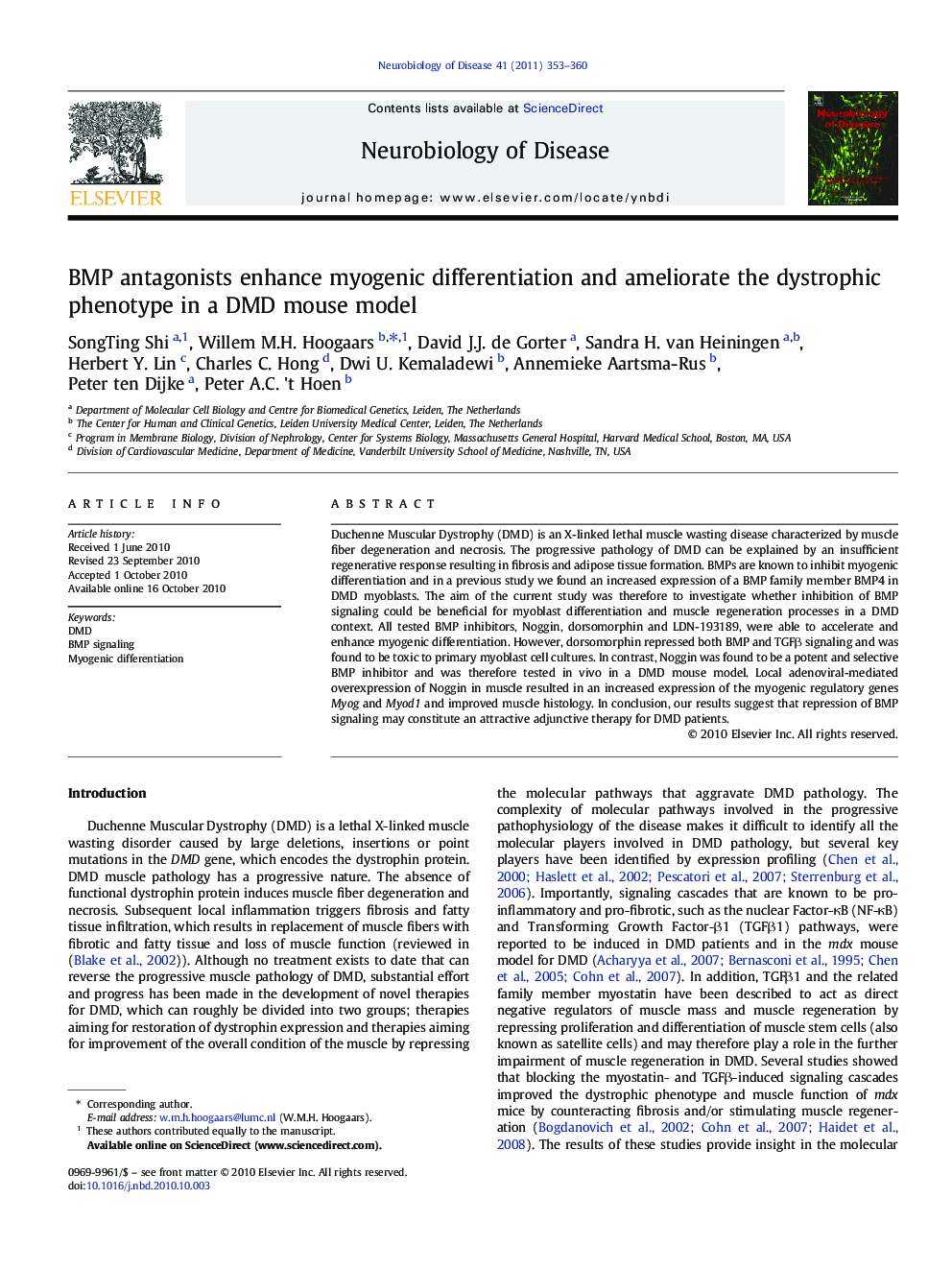| Article ID | Journal | Published Year | Pages | File Type |
|---|---|---|---|---|
| 3069598 | Neurobiology of Disease | 2011 | 8 Pages |
Duchenne Muscular Dystrophy (DMD) is an X-linked lethal muscle wasting disease characterized by muscle fiber degeneration and necrosis. The progressive pathology of DMD can be explained by an insufficient regenerative response resulting in fibrosis and adipose tissue formation. BMPs are known to inhibit myogenic differentiation and in a previous study we found an increased expression of a BMP family member BMP4 in DMD myoblasts. The aim of the current study was therefore to investigate whether inhibition of BMP signaling could be beneficial for myoblast differentiation and muscle regeneration processes in a DMD context. All tested BMP inhibitors, Noggin, dorsomorphin and LDN-193189, were able to accelerate and enhance myogenic differentiation. However, dorsomorphin repressed both BMP and TGFβ signaling and was found to be toxic to primary myoblast cell cultures. In contrast, Noggin was found to be a potent and selective BMP inhibitor and was therefore tested in vivo in a DMD mouse model. Local adenoviral-mediated overexpression of Noggin in muscle resulted in an increased expression of the myogenic regulatory genes Myog and Myod1 and improved muscle histology. In conclusion, our results suggest that repression of BMP signaling may constitute an attractive adjunctive therapy for DMD patients.
Research highlights► Endogenous BMP signaling is repressed during myogenic differentiation. ► Inhibition of BMP signaling by means of three different BMP inhibitors, Noggin, LDN-193189 and Dorsomophin, potentiates myogenic differentiation in both C2C12 mouse myoblasts and human primary myoblast cells. ► Local adenoviral-mediated overexpression of Noggin in muscles of mdx utrn+/- mice results in increased expression of the myogenic regulatory genes, reduced fibrosis/necrosis and improved muscle histology.
